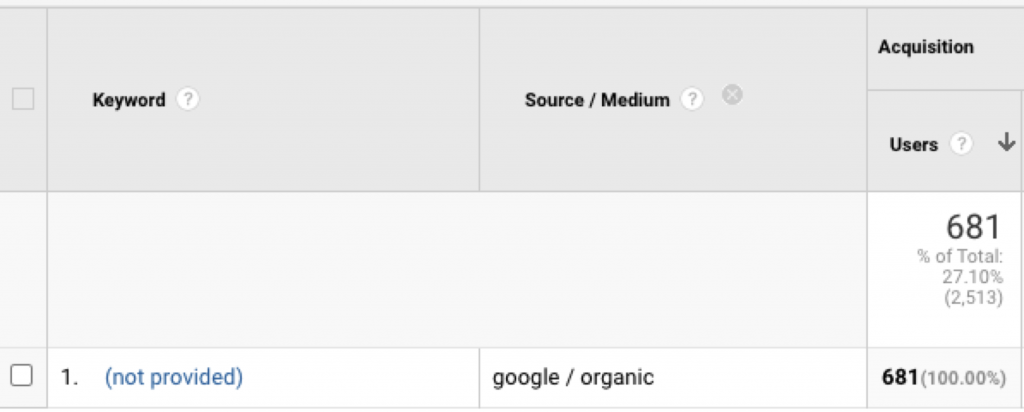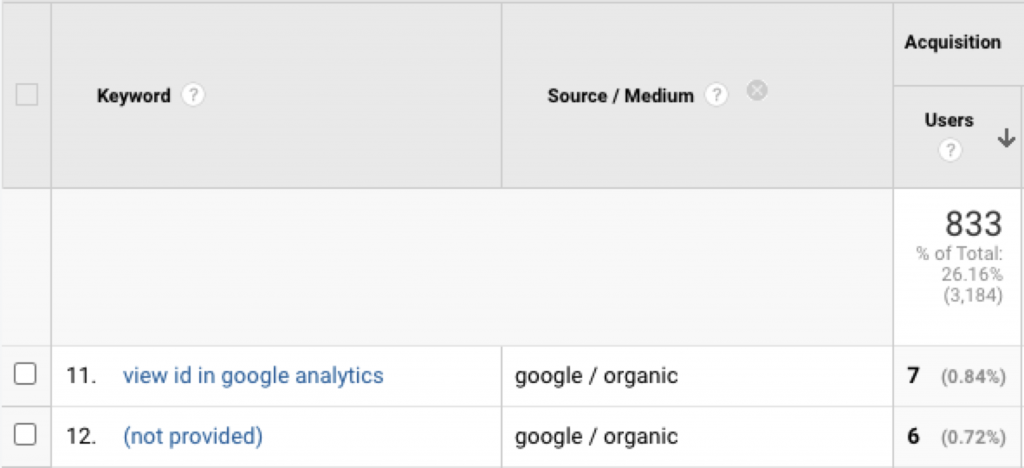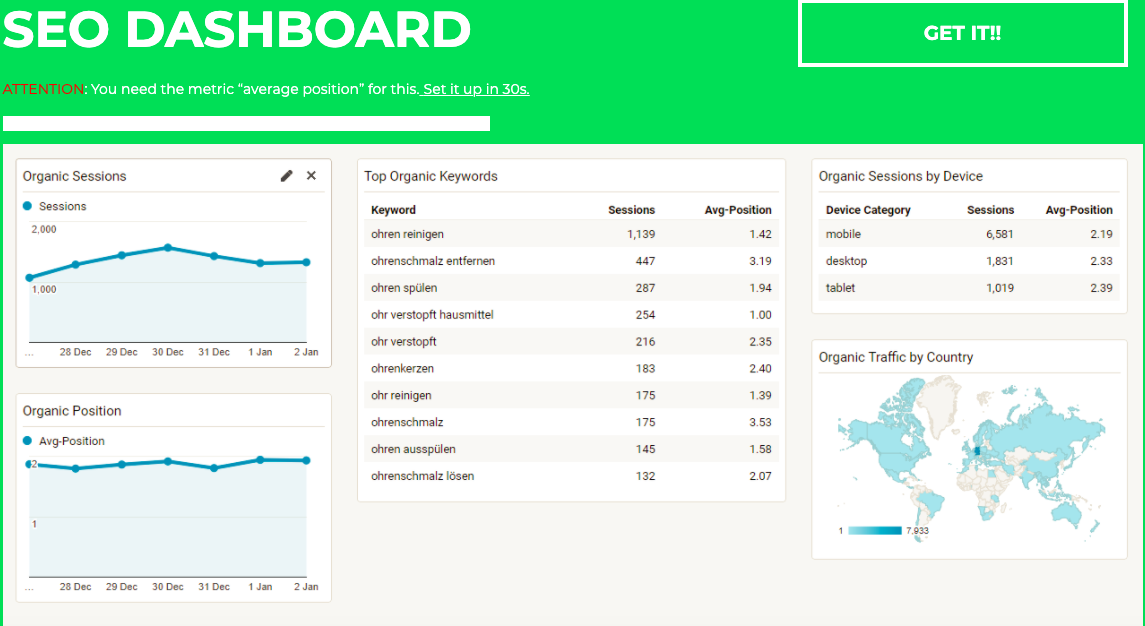Is finding organic search terms still an issue for digital marketers?
In a word, yes.
Since 2011, all search traffic moved to HTTPS and the ratio of keywords not provided in Google Analytics surged from about 41% to over 80%.
Today it’s effectively 100% of SEO organic keywords.
Is this an attempt by Google to throw its weight around?
It could be.
Yet, with advancements in data analysis and processing.
There is a way to reverse engineer your not provided keywords back.
Most SEOs use the data of which page received the visit from Google, and then try to reverse-engineer to find what keywords a page ranks for.
Based on this, you can triangulate the value from visitors’ keywords to this page.
7 steps to find organic search terms in Google Analytics
Step 1: Pull together nine different data sources
Step 2: Perform Google Analytics data analysis
Step 3: Analyze organic traffic for keyword fluctuation in Google Serps
Step 4: Train the keyword classifications
Step 5: Match sessions with keywords using an algorithm
Step 6: Start computation to unlock keywords not provided
Step 7: Session vs. string-based matching
Going from this:

To this:

In the first step, we grab our users’ Urls.
Then with rank monitoring services, SEO tools and crawlers.
And Google Trends, Bing Cognitive Services, Wikipedia’s API – and Google’s search console.
You can compute a long list of possible keywords per URL, and the first estimate of their likelihood.
All these results are then tested against hard data from browser extensions.
Next, this info is looped back to the initial deep learning algorithm, using a variety of mathematical concepts.
In 50 – 60% of all sessions, keywords are attributed with 100% certainty.
For the rest, at least 83% certainty is needed, otherwise, they’ll remain not provided.
94% of all sessions are matched.

People wondering how to find organic search terms in Google Analytics now have a chance to benefit from a scientific approach to search, as a result of far greater data processing power compared to six years ago.
At our HQ in Berlin, a team of data scientists mostly from the Fraunhofer Institute of Technology, make sense of large amounts of data.
We have access to vast amounts of data points from browser extensions that allow us to think about this as more of a data science problem.
Because that’s what this is.
Up until now, people have considered this an SEO problem or a Google Analytics problem.
But when you see it from the perspective that data processing is the limiting factor, you can begin to see a way around based on science.
Processing the information would have worked back in 2011.
But working with extremely large datasets was impossible at that time.
Just uploading the information back into our customers’ accounts would take a day on X1 Instances, Amazon Web Services. And it would have cost a small fortune.
However, it’s possible now, though, giving marketing professionals a chance to reclaim their organic keywords.
This will help with keyword optimization and strategic planning.
The business case for organic SEO
SEO is often strained to defend its commercial value.
Thus C-levels are reluctant to invest as they can’t see a direct return on investment.
Hence with a connection to revenue SEOs could argue for a greater share of marketing budgets.
Could Google be afraid that people would see that they rank well enough organically for some keywords they’re bidding on in Google Ads, and decide not to bid less?
Could they concerned that more people are asking how to find organic search terms in Google Analytics?
Probably.
This would cause Google to lose a lot of revenue as many websites would focus more on organic search than paid search.
Why should I find organic search terms in Google Analytics?
If our top-performing keywords were available again, marketers could target customers whose behavior they would now have deeper insights into.
You would begin to see more personalization on websites.

For example, if I’m an ecommerce merchant and I see that most visitors to a certain page search for ‘Black Nike Pegasus Running Shoes’.
I could then highlight that text on the page, or I could modify the navigation so that it displays black running shoes to visitors.
If businesses could better match content to search, the user experience would improve.
Critical SEO success factors like time on site, bounce rate, engagement, and conversion rates would all improve as page content aligns with search intent.
SEO managers could once again optimize their content around keywords that bring the most valuable visitors.
Unlocking not provided keyword data makes SEO more scientific.
For example, knowing how users convert that use your brand name in their search terms versus those who don’t, has a huge impact.
This helps with decision making.
Seeing thousands of keywords again is beneficial for sophisticated, data-driven SEOs, who can derive meaningful insights.
However, this keyword data is now accessible and actionable for all users and the dashboards make it easier to pinpoint opportunities.

8 Things you can do once you get your organic search keywords back
Once you have reverse engineered your top organic keywords you can optimize your SEO strategy with the following eight actions.
- Understand conversion keywords
- Find out keywords for quick wins
- Access keyword performance across devices
- Stop ranking cannibalism
- Analyze long-tail keywords
- Build better content
- Adjust to Google’s algorithm updates
- Detect and monitor brand keywords
You can read more about the 8 things you can do with your keywords in Google Analytics
Or click the banner above for a three month free trial.


